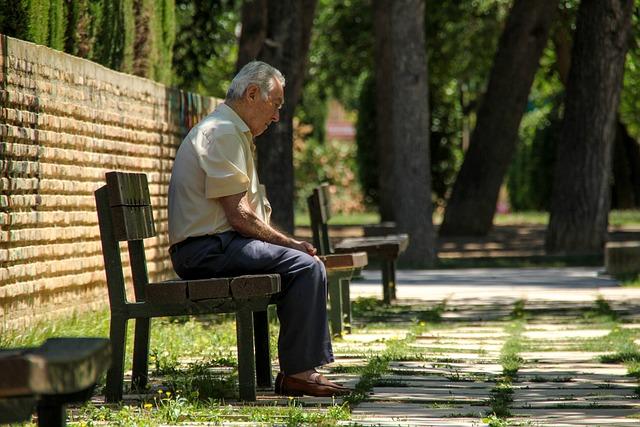In the quiet corners of our bustling world, where stories often go unheard, there exists a profound and heartbreaking narrative—that of elder abuse. It is a silent crisis that affects countless individuals who have spent their lives nurturing, building, and contributing to the very fabric of our society. Yet, in their golden years, some find themselves vulnerable and in need of protection. This article is a beacon of hope and guidance for those who wish to stand against this injustice. It is a compassionate call to action, offering not only the steps to report elder abuse but also a pathway to healing and support for both victims and their loved ones. Join us as we delve into the ways you can make a difference, ensuring dignity, respect, and safety for our cherished elders.
Recognizing the Signs: Understanding Elder Abuse in Its Many Forms
Elder abuse manifests in various insidious forms, often hiding in plain sight. Understanding these signs is crucial in safeguarding the dignity and well-being of our elders. Physical abuse might be the most visible, presenting as unexplained bruises or injuries. Yet, emotional abuse can be equally damaging, leaving scars on the psyche through intimidation, humiliation, or isolation. Financial exploitation is another pervasive form, involving the unauthorized use of an elder’s funds or assets. Neglect, though sometimes overlooked, is a severe form of abuse, characterized by the failure to provide essential care, leading to poor hygiene, malnutrition, or untreated medical issues.
To protect our elders, it’s important to recognize these signs early. Watch for the following indicators:
- Sudden changes in financial situations.
- Withdrawal from social activities or engagements.
- Unusual tension or arguments between the elder and caregiver.
- Frequent unexplained injuries or signs of restraint.
- Poor living conditions or lack of basic necessities.
By staying vigilant and informed, we can become advocates for the vulnerable, ensuring they receive the respect and care they deserve.
A Compassionate Approach: How to Communicate Concerns Effectively
Addressing concerns about elder abuse requires a blend of empathy and assertiveness. When speaking up, it’s crucial to approach the conversation with compassion and sensitivity. Start by expressing your concerns clearly, focusing on specific observations rather than assumptions. For example, you might say, “I’ve noticed some bruises and I’m worried about your safety,” rather than making accusatory statements. This gentle approach helps in opening a dialogue without putting the elder or caregiver on the defensive.
Consider these strategies for effective communication:
- Listen actively: Give the elder a chance to share their feelings and experiences. Sometimes, they may just need someone to talk to.
- Show empathy: Acknowledge their emotions and validate their feelings to build trust.
- Be patient: Understand that it may take time for them to open up about their situation.
- Offer support: Let them know you are there to help and provide information about resources and options available.
Remember, your goal is to empower the elder by showing genuine concern and offering help without judgment. By creating a safe and supportive environment, you can make a significant difference in their life.
Finding Your Voice: Steps to Reporting Elder Abuse Safely
Recognizing and reporting elder abuse can be daunting, but it’s crucial to ensure the safety and dignity of our elders. To start, trust your instincts. If something feels off, it probably is. Observe the elder’s physical and emotional state, and look for signs such as unexplained bruises, withdrawal from usual activities, or sudden changes in financial situations.
Once you’ve identified potential abuse, take the following steps to report it safely:
- Document any evidence of abuse, including dates, times, and specific incidents.
- Contact local authorities or elder abuse hotlines to report your concerns confidentially.
- Consult professionals, such as social workers or healthcare providers, for guidance and support.
- Ensure the elder’s immediate safety by involving trusted family members or friends.
Remember, taking action is a courageous step towards safeguarding the well-being of those who have given us so much.
Support Systems: Accessing Resources and Building a Network of Care
Navigating the complexities of elder abuse can be daunting, but knowing where to turn can make all the difference. Establishing a robust support system is essential. Begin by exploring local resources that specialize in elder care and protection. Many communities offer services through senior centers, legal aid organizations, and adult protective services. These resources can provide crucial information, guidance, and assistance. Additionally, don’t underestimate the power of online platforms. Websites like the National Center on Elder Abuse (NCEA) offer a wealth of information, including hotlines and support networks tailored to elder abuse cases.
Building a network of care involves connecting with others who understand and can support your journey. Consider joining support groups where you can share experiences and gain insights from those who have faced similar challenges. Many of these groups are available both in-person and online, providing flexible options to fit your needs. Additionally, fostering relationships with healthcare providers, social workers, and community advocates can create a comprehensive safety net. These individuals can offer not only practical assistance but also emotional support, helping to alleviate the stress and isolation that often accompany such difficult situations.


